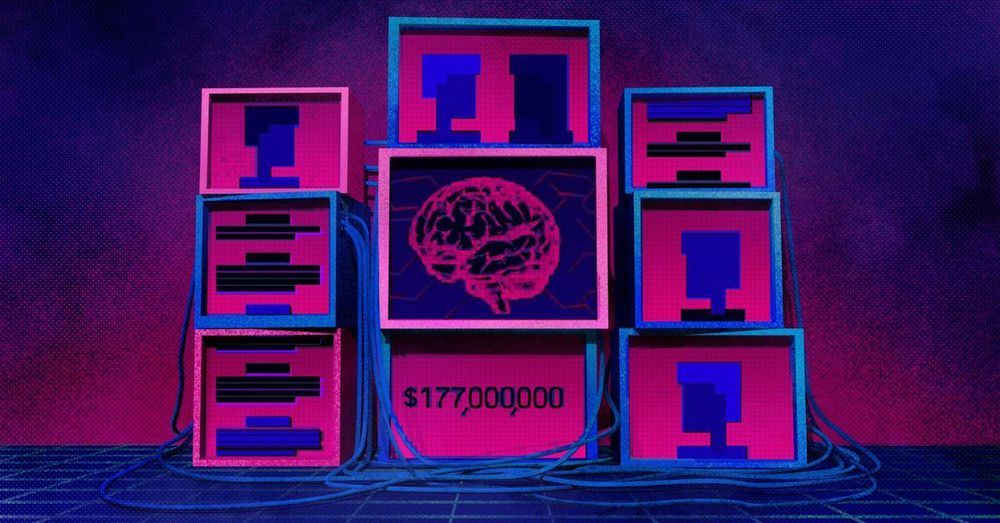China is poised to launch the first national digital currency. There will be no counting the disruption.
Archive for the ‘finance’ category: Page 100
Dec 28, 2019
Thieves are now using AI deepfakes to trick companies into sending them money
Posted by Joseph Barney in categories: economics, finance, law, robotics/AI
That might explain things…
There may soon be serious financial and legal ramifications to the proliferation of deepfake technology. The Wall Street Journal reported last week that a UK energy company’s chief executive was tricked into wiring €200,000 to a Hungarian supplier because he believed his boss was instructing him to do so. Instead, it was a thief using deepfake tech.
Dec 22, 2019
How Machines Are Taking Over the World’s Stock Markets
Posted by Derick Lee in categories: finance, information science, robotics/AI
Marcos López de Prado has been at the forefront of machine learning innovation in finance. The New-York based Spaniard was the first-ever head of machine learning at AQR, one of the world’s largest investment management firms, before he left earlier this year to start his own firm, which sells machine learning expertise and algorithms to Wall Street.
Science, not speculation, is the right way to invest, a top expert tells TIME.
Dec 16, 2019
Jim Mellon | Investing in the Age of Longevity
Posted by John Davies in categories: finance, life extension

Jim Mellon, speaking at Master Investor’s Investing in the Age of Longevity 2019 event.
Master Investor is an investment media and events company that delivers independent, financial commentary and analysis to UK private investors and traders through events, magazines, news, blogs, podcasts and daily/weekly newsletters.
Continue reading “Jim Mellon | Investing in the Age of Longevity” »
Dec 10, 2019
Global Nanosatellite and Microsatellite Market, Sector / Industry Report & Analysis, 2025
Posted by Saúl Morales Rodriguéz in categories: business, finance, satellites
Trusted Business Insights presents the Latest Study on Nanosatellite and Microsatellite Market 2019–2025. The report contains market predictions related to market size, revenue, production, CAGR, Consumption, gross margin, price, and other substantial factors. While emphasizing the key driving and restraining forces for this market, the report also offers a complete study of the future trends and developments of the market. It also examines the role of the leading market players involved in the industry including their corporate overview, financial summary, and SWOT analysis.
Get Sample Copy of this Report @ Global Nanosatellite and Microsatellite Market, Sector / Industry Report & Analysis, 2025
Abstract, snapshot, market analysis & market definition: global nanosatellite and microsatellite market.
Dec 10, 2019
New frontiers for health, space tech leadersin SA
Posted by Saúl Morales Rodriguéz in categories: business, finance, government, robotics/AI, space
Two of SA’s most promising female technology entrepreneurs have this year raised millions from astute local and international investors for their global-impact businesses in healthcare and space.
Presagen, co-founded by Dr Michelle Perugini, raised a total of $4.5 million from Jungle Capital group in Australia and US private investor 3Lines Venture Capital, with the SA Government also pitching in.
The funding will help commercialise its Life Whisperer artificial intelligence (AI) platform. Life Whisperer uses AI to identify healthy embryos in in-vitro fertilisation (IVF) with the aim of improving pregnancy outcomes for infertile couples globally.
Dec 9, 2019
The US just promised to adopt universal health care
Posted by Shailesh Prasad in categories: biotech/medical, finance, health, sustainability
Every single member of the UN doubled-down today on a commitment to provide universal health coverage to their citizens. The fact that the US will be among them is perhaps evidence of how disconnected these declarations can be from actual domestic political agendas.
Yet the issue is important, and it shows just how out of line the US approach to health care coverage is compared to the rest of the world. Only about half the world’s population has access to the kind of affordable health care services that don’t require crippling out-of-pocket costs. Most of those people are in mid- and low-income countries. Or they are in the wealthiest country on Earth: the US.
Bringing universal health care to everyone is one of the “sustainable development goals,” the ambitious to-do list for UN member countries to complete by 2030. For the UN, universal health care means, “financial risk protection, access to quality essential health-care services and access to safe, effective, quality and affordable essential medicines and vaccines for all.”
Dec 8, 2019
Dr Aubrey de Grey | Investing in the Age of Longevity 2019
Posted by Paul Battista in categories: biotech/medical, finance, life extension

Rejuvenation Biotechnology: on track to be the biggest industry ever.
Dr Aubrey de Grey, CSO at the SENS Research Foundation speaking at Master Investor’s Investing in the Age of Longevity 2019 event. Aubrey discusses Rejuvenation biotechnology and how it’s on track to become the biggest industry ever.
Continue reading “Dr Aubrey de Grey | Investing in the Age of Longevity 2019” »
Dec 7, 2019
Reason | Investing in the Age of Longevity 2019
Posted by John Davies in categories: biotech/medical, finance, life extension

Gene therapies to reverse immunosenescence and atherosclerosis.
CEO of Repair Biotechnologies speaking at Master Investor’s Investing in the Age of Longevity 2019 event. Reason discusses gene therapies to reverse immunosenescence and atherosclerosis.
Continue reading “Reason | Investing in the Age of Longevity 2019” »
Dec 5, 2019
Singapore’s human-centric artificial intelligence strategy | The Straits Times
Posted by Derick Lee in categories: education, finance, habitats, robotics/AI, security

The national artificial intelligence strategy, which was unveiled in November, will focus on five key sectors — transport and logistics, smart cities and estates, safety and security, healthcare, and education.
Read the full story: https://www.straitstimes.com/singapore/tapping-ai-to-deliver…ect-issues
Continue reading “Singapore’s human-centric artificial intelligence strategy | The Straits Times” »













